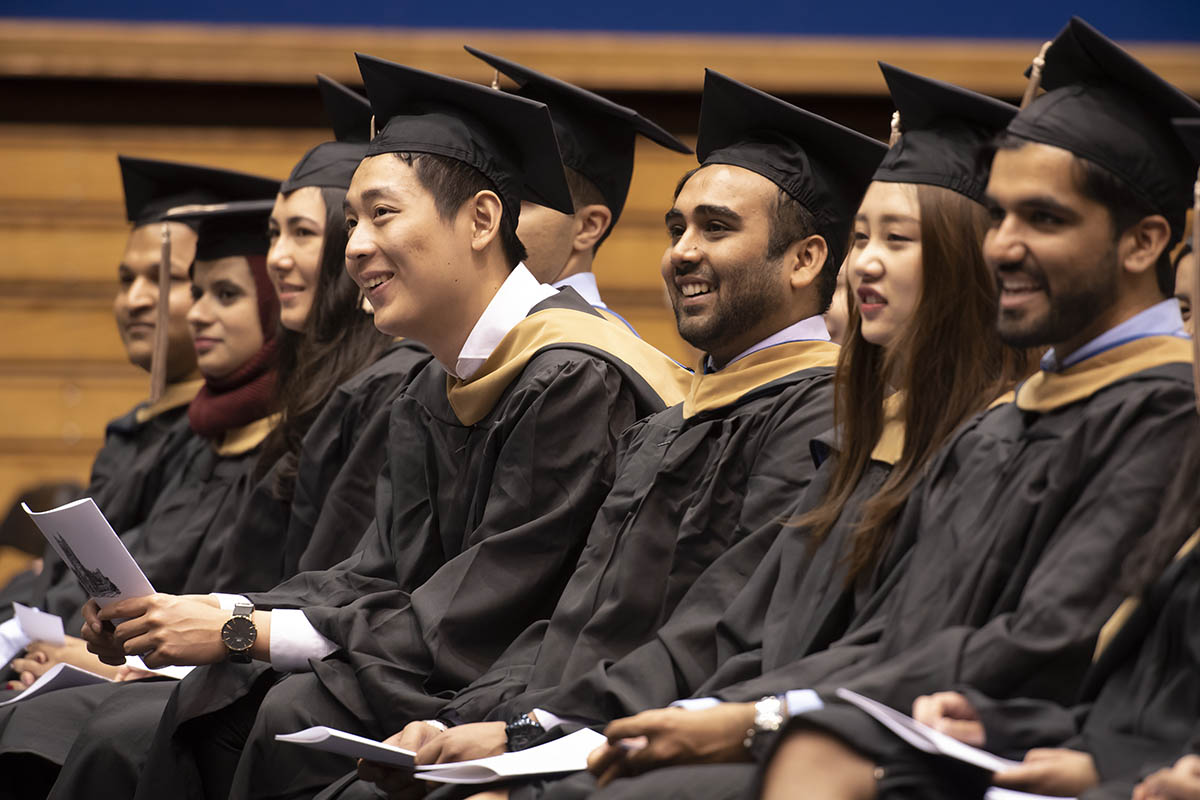Duke MQM Student Blog

MQM Jobs Report: A Front Row View
Each year we release a jobs report, which is a snapshot of where our graduates land. While I'm always proud to share where our students are going and how each is pursuing his or her goals, it's also a moment of reflection.

Much of my career has been invested in the careers of others. After earning my MBA, I spent 14 years at PwC and then ten years as an independent consultant and career coach for MBAs at Duke. When the school launched our Master of Quantitative Management: Business Analytics (MQM) program three years ago, I jumped at the chance to work full-time with those students. I’ve found it tremendously rewarding to teach incredibly smart and capable students how to think about navigating the lifetime of their careers, not just securing the jobs immediately after graduation.
Each year we release a jobs report, which is a snapshot of where our graduates land. While I’m always proud to share where our students are going and how each is pursuing his or her goals, it’s also a moment of reflection.
Having been with the program since launch, I have a unique vantage point to see just how far we’ve come in three years and how our career curriculum and resources continue to evolve based on what we learn from students’ experiences finding jobs.
Both the classes of 2018 and 2019 were 97% employed as of the reporting time, however, these directional highlights show our progress between MQM’s first two years:
- Median full-time U.S. base salary increased by more than 9% from $80,000 to $87,500.
- Graduates securing U.S. full-time roles increased 34% from 89 to 118, while graduates in finite, short-term positions decreased from 21 to 3, and the number working outside the U.S. fell from 19 to 7.
- Our graduates found work with more than 80 employers.
The jobs report numbers only tell part of the story. I want to share a few more insights from my experience with students and recruiters last year.
1. We’ve made strides in recruiting and career search training.
The number of graduates finding jobs directly through campus channels increased rapidly from 2018 to 2019, jumping 29%. As the program matures, companies are increasingly willing and able to come to campus or post a role on our internal job boards. Due to the success our graduates have in the roles they land, the number of employers recruiting on campus continues to increase. Sixty percent of 2019 graduates found jobs with companies that do not recruit at Duke or on any campus, instead leveraging the other resources we’ve worked to cultivate. Our students compete with young working professionals for many of these roles, and we help them determine where years of experience required are a proxy for the quantitative skills we teach, rather than an absolute filter. As a result, many MQM students with no prior full-time work are able to get jobs that require a year or two of experience.
2. Our presence at many top tier companies is growing.
Our presence in 2019 grew, with graduates landing at new employers like Google, Uber Freight, Intel, Microsoft, Gartner, and Home Depot. As our graduates find opportunities at these top-tier companies they are bringing them back to Fuqua to recruit. Companies say, “Oh your students can do that? How many do you have?” Graduates tell us that analytics capabilities are being built around them. Some of our students are getting more traditional business jobs and when employers discover their quantitative and analytical skill sets, they’re creating projects and advancement opportunities specifically for them.
3. Our alumni network is effective and becoming more robust.
It’s hard to overstate the value of an established MQM alumni network. Our graduates have been generous beyond words and are making such a strong impact on employers that they almost seem to multiply where they land. In 2018 we had one graduate join Capital One, and in 2019 they hired seven more. Amazon and Credit Suisse each hired one graduate in 2018 and came back to hire four the next year. Employers like EY, Facebook, Lenovo, and UPS each hired more in 2019 than they did in 2018.
Feedback from our graduates and the increasing demand from recruiters make me confident about the long-term value of this program. As our graduates gain footholds in top tier companies they open more doors for the following classes. We are connecting 2020 students to opportunities via our MQM alumni and watching closely to see where we can gain traction. Seeing the program mature with each academic cycle keeps me as excited about this program as I was when it started!



